


Balancing Prosperity And The Planet

Sustainable development is a concept that has gained significant importance in recent years as our world faces pressing environmental, social, and economic challenges. It represents a fundamental shift in how we think about progress, acknowledging that the well-being of present and future generations depends on our ability to balance economic growth, social equity, and environmental stewardship.
At its core, sustainable development seeks to address the urgent need to reduce the negative impact of human activities on the environment while simultaneously promoting social well-being and economic prosperity. This balance is often referred to as the "triple bottom line," where economic, social, and environmental factors are considered equally important.
One of the key principles of sustainable development is the recognition that our planet's resources are finite. As we continue to grow in population and economic activity, it becomes imperative to manage our resources more responsibly. This involves reducing resource consumption, minimizing waste, and promoting energy efficiency. Sustainable development encourages innovation and the adoption of cleaner, greener technologies to mitigate our impact on the environment.
Environmental sustainability is a central pillar of sustainable development. It advocates for the conservation of ecosystems, the protection of biodiversity, and the reduction of pollution and emissions. It promotes responsible land and resource management, focusing on sustainable agriculture, forestry, and fisheries. Additionally, it calls for the reduction of greenhouse gas emissions to combat climate change, a global challenge that threatens the well-being of people and ecosystems alike.
However, sustainable development is not only about the environment. It also prioritizes social equity and inclusivity. This means ensuring that all members of society have access to basic services like healthcare, education, and clean water. It aims to reduce poverty and inequality, empowering communities and individuals to improve their own quality of life. A key component of this social dimension is the active participation of all stakeholders in decision-making processes, ensuring that no one is left behind.
Economic growth is the third critical aspect of sustainable development. While it seeks to balance prosperity with environmental and social goals, it does not advocate for the halt of economic progress. Instead, it calls for a transition to a more circular and sustainable economy. This involves adopting green business practices, investing in clean technologies, and promoting sustainable consumption and production patterns.
Sustainable development is a complex and multi-faceted concept, and its implementation requires cooperation and commitment on a global scale. The United Nations' 17 Sustainable Development Goals (SDGs) are a clear expression of this global ambition. These goals address a wide range of issues, from poverty and hunger to clean energy and climate action, demonstrating the interconnectedness of social, economic, and environmental challenges.
Sustainable development is the path forward for a world grappling with the pressing issues of our time. It acknowledges that human well-being is intertwined with the health of the planet, and that we must find a way to balance prosperity with environmental and social concerns. By adopting the principles of sustainable development and working together on a global scale, we can pave the way to a better future for all, where the needs of the present do not compromise the needs of future generations.
Cleaning Your Home The Eco-Friendly Way
 Reduced Health Risks: Natural cleaning products are less likely to cause skin irritations, allergies, or other health problems associated with chemical exposure.
Reduced Health Risks: Natural cleaning products are less likely to cause skin irritations, allergies, or other health problems associated with chemical exposure.
Eco-Friendly: Natural cleaning solutions are gentle on the environment. They don't contribute to water pollution when washed down drains, and they reduce the production and disposal of harmful chemicals.
Versatility: Natural ingredients like vinegar, baking soda, and lemon juice can be used in a variety of cleaning tasks, reducing the need for multiple specialized cleaning products.
Common Natural Cleaning Solutions
Vinegar: White vinegar is a versatile natural cleaner that can be used to disinfect surfaces, remove stains, and even clean glass.
Baking Soda: Baking soda is an effective abrasive cleaner, perfect for scrubbing surfaces, deodorizing, and eliminating stains.
Lemon Juice: Lemon juice is a natural disinfectant that also leaves behind a fresh, citrus scent. It's great for cutting through grease and grime.
Essential Oils: Many essential oils, such as tea tree oil, lavender oil, and eucalyptus oil, have natural cleaning and disinfecting properties. They can be added to homemade cleaning solutions for added fragrance and antibacterial power.
Olive Oil: Olive oil can be used to clean and polish wooden surfaces and stainless steel appliances.
Methods Of Using Natural Cleaning Solutions
All-Purpose Cleaner: Create a basic all-purpose cleaner by mixing equal parts water and white vinegar. Add a few drops of your favorite essential oil for a pleasant scent.


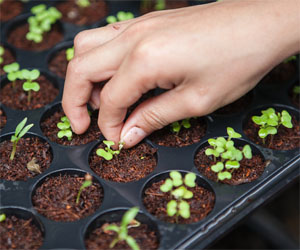
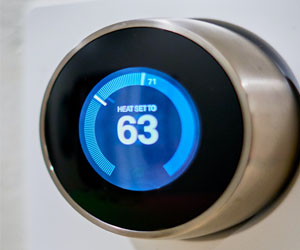
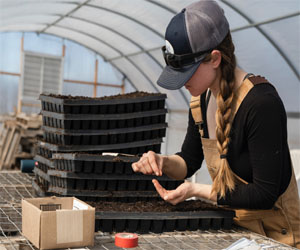

Nurturing Sustainable And Efficient Agriculture
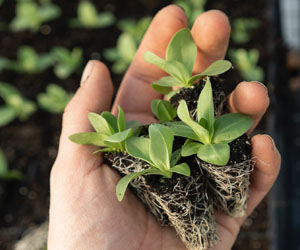 The Principle Of Wicking Systems
The Principle Of Wicking Systems
Wicking systems are a type of passive sub-irrigation method that relies on capillary action to transport water from a reservoir to the root zone of plants. The basic components of a wicking system include a water reservoir, a wicking medium (commonly soil or a soilless mix), and a growing container or bed with a wick that draws water up to the plant's roots.
The key principle behind wicking systems is the movement of water through porous materials, like soil or a specialized wicking fabric, from areas of high water concentration (the reservoir) to areas of lower water concentration (the root zone). This capillary action ensures a consistent and controlled water supply to the plants, making wicking systems highly efficient.
Advantages Of Wicking Systems
Water Efficiency: Wicking systems significantly reduce water wastage by providing moisture directly to the root zone. This targeted irrigation minimizes evaporation and runoff.
Reduced Labor: Once set up, wicking systems require minimal maintenance and are well-suited for urban gardens, container gardening, and raised beds, making them an excellent choice for those with limited time or space.
Improved Plant Health: Consistent moisture levels contribute to healthier and more robust plant growth. These systems help prevent overwatering, which can lead to root rot and other water-related plant diseases.
Drought Resilience: Wicking systems can conserve water and sustain plants during dry spells, making them a valuable tool in regions prone to drought.
Customizable Design: Wicking systems can be adapted to various scales, from small pots to large garden beds and even commercial agriculture, providing flexibility and adaptability to different needs.
The Power Of Smart Home Upgrades
 One of the primary advantages of smart home upgrades is the convenience they bring to our daily lives. Imagine being able to control your lights, thermostat, and even your coffee maker with a simple voice command or a tap on your smartphone. With the help of devices like smart speakers and home automation systems, you can create a truly interconnected living space. Adjusting your home's settings to suit your preferences has never been easier, making everyday tasks more efficient and enjoyable.
One of the primary advantages of smart home upgrades is the convenience they bring to our daily lives. Imagine being able to control your lights, thermostat, and even your coffee maker with a simple voice command or a tap on your smartphone. With the help of devices like smart speakers and home automation systems, you can create a truly interconnected living space. Adjusting your home's settings to suit your preferences has never been easier, making everyday tasks more efficient and enjoyable.
Security And Peace Of Mind
Smart home security is another major draw for homeowners. Advanced security systems equipped with cameras, motion sensors, and doorbell cameras provide real-time monitoring and alerts. This means you can keep a watchful eye on your property, whether you're at home or miles away. Smart locks also add an extra layer of security, allowing you to control access remotely and even provide temporary digital keys to guests.
Energy Efficiency
Smart home upgrades can significantly contribute to reducing your energy consumption and environmental footprint. Smart thermostats, for instance, can create personalized heating and cooling schedules that adapt to your daily routines, resulting in lower energy bills. Moreover, you can monitor and control your energy usage with the help of energy management systems, which offer insights into where and how you can save energy.
Customized Entertainment
Entertainment systems have also undergone a transformation with smart home upgrades. With a single remote control or voice command, you can manage your audio and video equipment, from smart TVs and streaming devices to home theater systems. Integration with virtual assistants like Alexa or Google Assistant allows you to effortlessly switch between your favorite movies, music, and more.
Cultivating More Than Just Plants
 Mental Health Benefits
Mental Health Benefits
Mindfulness: Gardening encourages mindfulness, as it requires you to be present in the moment. The act of nurturing plants allows you to disconnect from daily stressors.
Improved Mood: The visual appeal of a well-tended garden can bring about a sense of achievement and happiness. The act of watching plants grow and bloom is therapeutic.
Mental Focus: Gardening tasks, such as planning and maintaining your garden, require mental focus and problem-solving skills, which can help sharpen your cognitive abilities.
Environmental Benefits
Conservation: Home gardens can promote biodiversity by attracting pollinators and beneficial insects. This contributes to the health of local ecosystems.
Sustainability: Growing your food reduces your carbon footprint by decreasing the need for transportation and packaging of commercial produce.
Education: Gardening offers opportunities to learn about ecosystems, sustainable practices, and the importance of protecting the environment.
The Fruits Of Gardener's Labor
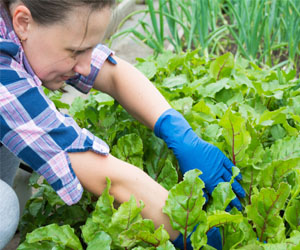 Connection To Nature
Connection To Nature
Gardening is a harmonious dance with nature. Abundant harvests illustrate the beautiful partnership between the gardener and the Earth. Tending to the soil, choosing the right seeds or saplings, watering, and protecting your plants from pests and disease — all these efforts are rewarded by the Earth's generous bounty. The cycles of life in your garden, from planting to harvesting, mirror the larger cycles of nature, and they remind us of our place in the natural world.
Self-Sufficiency And Sustainability
Abundant harvests also represent a move toward self-sufficiency and sustainability. Growing your own food not only reduces your reliance on commercial agriculture but also ensures that you have a fresh and healthy food source right at your doorstep. It empowers individuals and families to take control of their food supply and make environmentally conscious choices. When you produce your food, you reduce the carbon footprint associated with transportation and packaging.
Health And Nutrition
The fruits of abundant harvests are some of the healthiest foods you can consume. Homegrown produce is free from harmful chemicals and pesticides, offering unparalleled freshness and nutrition. These vegetables and fruits are picked at their peak ripeness, preserving their vitamins, minerals, and flavors. When you have an abundant harvest, you have an abundance of wholesome, nutrient-rich foods at your disposal.
Sharing The Bounty
Abundant harvests often lead to an abundance that extends beyond your own household. Gardeners frequently find themselves with more produce than they can personally consume. This surplus can be shared with friends, family, and the community. Sharing the fruits of your labor is a deeply satisfying experience that strengthens bonds and fosters a sense of community.